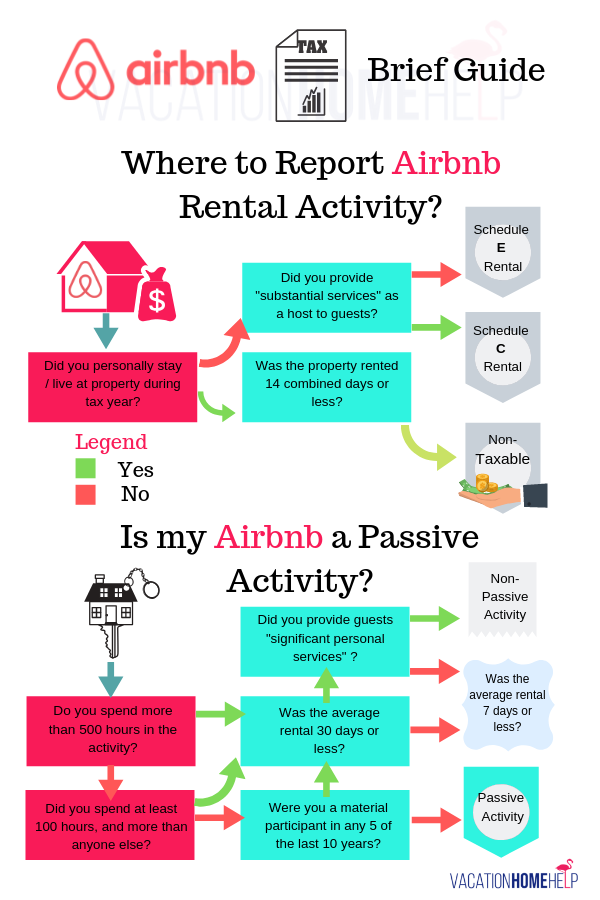Are you an Airbnb host looking for ways to save on taxes? With Airbnb now being a popular way to make extra income, it can be quite a challenge to manage taxes efficiently. Thankfully, there are some simple steps you can take to reduce your Airbnb tax burden and keep more of your hard-earned money. In this article, we will discuss how to avoid Airbnb taxes so you can keep more of your profits.
How to Avoid Airbnb Taxes?
- Check the rules and regulations in your area. Airbnb hosts are responsible for collecting and remitting taxes from their guests.
- Research the local and state taxes applicable to Airbnb rentals. Generally, Airbnb hosts must collect sales tax, occupancy taxes and tourist taxes.
- Consider setting up a business entity. Depending on your locality, you may want to set up a business entity to manage your Airbnb rental.
- Keep accurate records and receipts. Make sure to keep all records and receipts related to the rental in case you are audited by the IRS.
- Find an accountant. An accountant can help you keep track of your taxes and ensure that you are paying the right amount.

Strategies to Reduce Airbnb Tax Liability
When it comes to renting out your property through Airbnb, one of the biggest concerns is the taxes that you may have to pay. With the proper strategies, however, you can reduce your Airbnb tax liability and have a more profitable venture. Here are some of the ways to avoid Airbnb taxes:
Take Advantage of Tax Breaks
Many countries provide tax breaks for rental properties. In the United States, for example, you may be able to deduct expenses such as mortgage interest, property taxes, and utilities from your rental income. These deductions can significantly reduce your Airbnb tax liability. It is important to consult with a tax professional to determine which deductions are applicable to you.
You should also be aware of the tax laws in your country or state. Depending on your situation, you may be able to take advantage of other tax breaks such as the passive activity loss rules or the home office deduction.
Set Up a Separate Business Entity
Setting up a separate business entity for your Airbnb business can help reduce your Airbnb tax liability. A separate business entity can help you to separate your business and personal income, as well as protect you from personal liability. Additionally, a business entity such as a limited liability company (LLC) can help you to take advantage of certain tax deductions and credits.
Keep Detailed Records
It is important to keep detailed records of your Airbnb income and expenses. Keeping track of your income and expenses will help you to accurately calculate your Airbnb tax liability. Additionally, it is important to keep track of your expenses so that you can take advantage of all available tax deductions.
Consider Hiring a Tax Professional
Tax laws can be complicated, and it is important to ensure that you are in compliance with the laws in your country or state. A tax professional can help you to ensure that you are filing your taxes accurately and taking advantage of all applicable tax breaks.
Take Advantage of Tax Compliance Services
There are a number of services that can help you to manage your Airbnb taxes. These services can help you to automatically track your income and expenses, and file your taxes accurately. Additionally, some of these services can help you to take advantage of tax deductions and credits.
Conclusion
There are a number of strategies that can help you to reduce your Airbnb tax liability. Taking advantage of tax breaks, setting up a separate business entity, keeping detailed records, hiring a tax professional, and utilizing tax compliance services can all help you to reduce your taxes and maximize your profits.
Frequently Asked Questions
1. What are Airbnb Taxes?
Airbnb taxes refer to the taxes that are imposed by local and state governments on people who are renting out their homes or hosting guests via Airbnb. These taxes can include hotel taxes, occupancy taxes, sales taxes, and other taxes. Depending on the jurisdiction, these taxes can be different and can vary greatly. It is important to understand the taxes in your area before renting out your property on Airbnb.
2. Why is it important to avoid Airbnb taxes?
It is important to avoid Airbnb taxes because they can add up quickly and cut into your profits. Also, if you are not compliant with the local and state tax laws, you may be subject to fines and other penalties. Furthermore, if you are not compliant with Airbnb’s tax obligations, you may have your account terminated.
3. What are some tips for avoiding Airbnb taxes?
The best way to avoid Airbnb taxes is to be aware of the tax laws in your area and make sure that you are compliant with them. Additionally, you should keep accurate records of your Airbnb income and expenses and make sure to report your income accurately. You should also consider using a professional tax preparer who is familiar with Airbnb tax regulations.
4. What happens if I don’t pay Airbnb taxes?
If you do not pay Airbnb taxes, you may be subject to fines and other penalties. Additionally, you may have your account terminated by Airbnb. Furthermore, the IRS may impose penalties for failing to report income from Airbnb.
5. Are there any tax deductions I can take for Airbnb income?
Yes, there are tax deductions you can take for Airbnb income. For example, you may be able to deduct expenses like advertising, cleaning, maintenance, and other costs related to your Airbnb business. Additionally, you may be able to deduct travel expenses related to your Airbnb business.
6. Are there any tax breaks for Airbnb hosts?
Yes, there are tax breaks for Airbnb hosts. For example, some states have tax credits for people who rent out their homes through Airbnb. Additionally, some states have laws that exempt Airbnb hosts from certain taxes. Additionally, some local governments may offer tax incentives for Airbnb hosts. It is important to research the tax laws in your area to determine what tax breaks may be available to you.
Best Rental Tax Deductions For Vacation And Airbnb Business (How to pay zero taxes)
Avoiding Airbnb taxes may seem like a daunting task, but with a little bit of effort, it can be done. By properly filing and reporting your income, keeping detailed records of your rental activity, and working with experienced Airbnb tax professionals, you can make sure you don’t owe any more taxes than necessary. With the right preparation, you can be sure that you are following the tax laws and avoiding any potential penalties.

